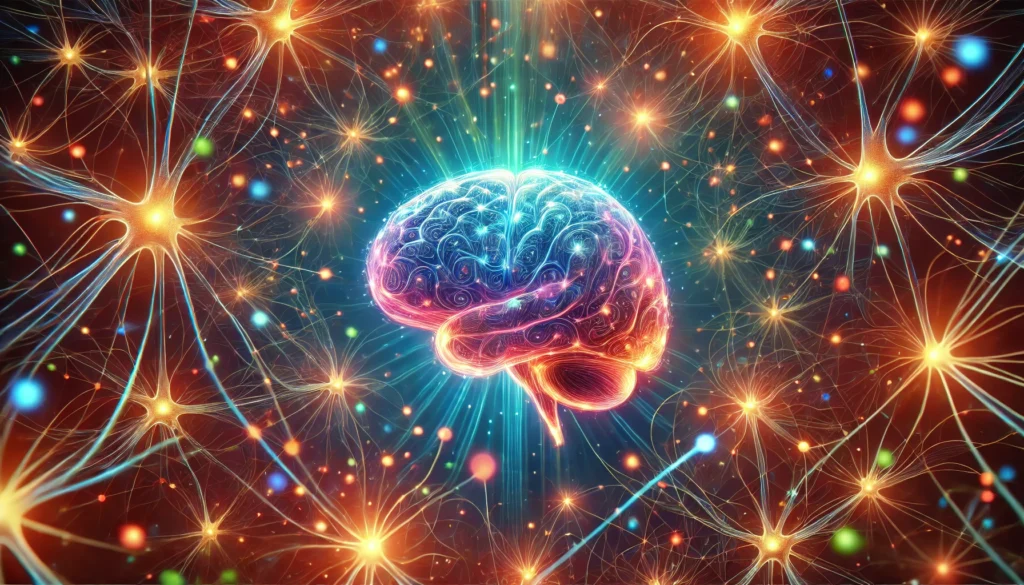Introduction: Understanding Brain Cell Regeneration
The human brain was once thought to be incapable of regenerating cells, but modern neuroscience has disproven this myth. Neurogenesis, the process of forming new neurons, continues into adulthood and plays a critical role in cognitive health, memory retention, and emotional well-being. For those wondering how to regenerate brain cells naturally, scientific research provides compelling evidence that lifestyle changes, dietary modifications, and targeted supplements can support brain cell regeneration.
The ability to restore and maintain brain function is especially critical in preventing age-related cognitive decline and conditions like Alzheimer’s disease. Understanding how to regain brain cells and how to increase brain cells naturally can empower individuals to take proactive steps in optimizing their mental health.
This article delves into science-backed ways to boost brain health, exploring key strategies such as diet, exercise, sleep, stress management, nootropics, and biohacking techniques that foster neurogenesis and enhance cognitive performance.
You May Also Like: Does Exercise Help with Brain Fog? The Science Behind Movement and Mental Clarity
The Science Behind Brain Cell Regeneration
Brain cell regeneration, or neurogenesis, occurs in specific regions of the brain, particularly the hippocampus, which is crucial for learning and memory. Research has identified multiple factors that influence neurogenesis, including growth factors such as brain-derived neurotrophic factor (BDNF), nerve growth factor (NGF), and vascular endothelial growth factor (VEGF).
Understanding how to fix brain matter begins with recognizing the importance of these growth factors. They stimulate the survival and proliferation of neural progenitor cells, which differentiate into mature neurons. Several lifestyle modifications have been found to increase BDNF levels, enhancing cognitive function and resilience against neurodegenerative diseases.

Diet and Brain Cell Regeneration
Dietary choices play a pivotal role in how to regenerate brain cells naturally. Certain nutrients, antioxidants, and fatty acids have been scientifically proven to promote neurogenesis and protect brain function.
Omega-3 Fatty Acids
Omega-3 fatty acids, particularly docosahexaenoic acid (DHA), are essential for brain cell membrane integrity and function. Studies have shown that DHA supplementation enhances neurogenesis and supports cognitive performance.
Foods rich in Omega-3s:
- Fatty fish (salmon, mackerel, sardines)
- Walnuts
- Flaxseeds
- Chia seeds
Antioxidants and Polyphenols
Oxidative stress contributes to neuronal damage and cognitive decline. Antioxidants neutralize free radicals, reducing inflammation and supporting neurogenesis.
Best sources of antioxidants:
- Blueberries (rich in flavonoids that boost BDNF)
- Dark chocolate (high in flavanols that increase cerebral blood flow)
- Green tea (contains epigallocatechin gallate, which promotes brain cell growth)
- Turmeric (curcumin increases BDNF and reduces neuroinflammation)
B Vitamins
B vitamins, particularly B6, B9 (folate), and B12, are essential for DNA synthesis, neurotransmitter function, and myelin formation.
Sources of B vitamins:
- Leafy greens (spinach, kale)
- Eggs
- Legumes
- Liver
Probiotics and Gut Health
The gut-brain axis is crucial for cognitive health. Probiotics promote a healthy microbiome, which influences BDNF levels and neurogenesis.
Probiotic-rich foods:
- Yogurt
- Kefir
- Fermented vegetables (kimchi, sauerkraut)
- Miso
Exercise and Brain Cell Regeneration
Physical activity is one of the most effective ways to enhance how to increase brain cells naturally. Regular exercise boosts BDNF levels, improves synaptic plasticity, and enhances memory retention.
Aerobic Exercise
Cardiovascular workouts increase oxygen and nutrient delivery to the brain, stimulating the release of growth factors.
Best aerobic exercises:
- Running
- Cycling
- Swimming
- Brisk walking
Strength Training
Resistance exercises improve neurogenesis by enhancing insulin sensitivity and reducing oxidative stress.
High-Intensity Interval Training (HIIT)
Short bursts of intense exercise improve cognitive performance and increase neuroplasticity.

Sleep and Brain Cell Regeneration
Sleep is vital for memory consolidation and the removal of neurotoxic waste. Poor sleep impairs cognitive function and inhibits how to regain brain cells.
How Sleep Promotes Neurogenesis
- Deep sleep stages promote BDNF production
- REM sleep strengthens neural connections
- Sleep deprivation decreases hippocampal neurogenesis
Ways to Improve Sleep
- Maintain a consistent sleep schedule
- Reduce blue light exposure before bedtime
- Practice relaxation techniques like meditation
- Use magnesium and melatonin supplements
Stress Reduction and Mindfulness Practices
Chronic stress elevates cortisol levels, which can damage neurons and hinder neurogenesis. Stress management is critical for those seeking how to increase brain cells naturally.
Mindfulness and Meditation
- Reduces stress-related hippocampal atrophy
- Enhances prefrontal cortex function
- Boosts gray matter volume
Breathing Techniques
- Diaphragmatic breathing activates the parasympathetic nervous system
- Box breathing improves focus and emotional regulation
Nootropics and Supplements for Brain Health
Nootropics, or cognitive enhancers, offer another avenue for how to regenerate brain cells naturally.
Best Nootropic Compounds
- Lion’s Mane Mushroom – Stimulates NGF, promoting nerve regeneration
- Bacopa Monnieri – Enhances memory and neuroplasticity
- Rhodiola Rosea – Reduces cortisol and improves cognitive function
- Phosphatidylserine – Supports neuronal membrane function
- Acetyl-L-Carnitine – Boosts mitochondrial function and neuroprotection
Brain Training and Cognitive Stimulation
Engaging in challenging mental activities can enhance how to regain brain cells by strengthening neural pathways.
Activities That Enhance Neuroplasticity
- Learning a new language
- Playing musical instruments
- Solving puzzles and brain teasers
- Practicing visualization exercises
The Role of Fasting and Ketosis in Neurogenesis
Intermittent fasting and ketogenic diets have been shown to promote how to fix brain matter by inducing metabolic changes that enhance neurogenesis.
Benefits of Intermittent Fasting
- Increases BDNF production
- Enhances mitochondrial efficiency
- Reduces oxidative stress
Ketogenic Diet and Brain Health
- Increases ketone bodies, which provide an alternative energy source for neurons
- Reduces inflammation and supports synaptic function

Frequently Asked Questions (FAQs)
1. Can the brain actually regenerate lost brain cells?
Yes, contrary to old scientific beliefs, the brain can regenerate lost brain cells through a process called neurogenesis. This primarily occurs in the hippocampus, the area responsible for memory and learning. Research has shown that certain lifestyle factors—such as exercise, proper nutrition, and mental stimulation—can increase brain cells naturally and strengthen neural connections. However, while new neurons can be formed, preventing damage to existing neurons is equally important for long-term cognitive health. By maintaining a brain-healthy lifestyle, individuals can optimize the brain’s ability to heal and adapt.
2. How does diet affect brain cell regeneration?
Diet plays a crucial role in how to regenerate brain cells naturally by providing essential nutrients that support neurogenesis and cognitive function. Omega-3 fatty acids, found in fatty fish, walnuts, and flaxseeds, are essential for neuronal integrity and plasticity. Antioxidant-rich foods, such as blueberries, green tea, and dark chocolate, protect brain cells from oxidative stress and inflammation. B vitamins (found in leafy greens and eggs) aid in neurotransmitter function, while probiotics improve gut-brain communication, influencing brain cell growth. Incorporating these foods into a balanced diet can significantly enhance brain regeneration and function.
3. What exercises are most effective for increasing brain cells naturally?
Engaging in regular physical activity is one of the most effective ways to increase brain cells naturally. Aerobic exercise, such as running, swimming, and cycling, increases brain-derived neurotrophic factor (BDNF), a protein essential for neurogenesis. Strength training and high-intensity interval training (HIIT) also contribute to brain health by enhancing blood flow and reducing oxidative stress. Additionally, mind-body exercises, such as yoga and tai chi, promote relaxation and stress reduction, which supports long-term neuroplasticity. Consistently incorporating these activities into your routine can significantly boost brain regeneration and overall mental resilience.
4. How does sleep impact brain cell regeneration?
Sleep is essential for how to fix brain matter, as it facilitates memory consolidation, detoxifies brain cells, and promotes neurogenesis. During deep sleep and REM stages, the brain undergoes repair processes that help maintain neuron health. Lack of sleep can lead to increased cortisol levels, which can damage brain cells and impair cognitive function. Establishing a consistent sleep routine, reducing screen time before bed, and practicing relaxation techniques such as meditation can improve sleep quality. By prioritizing restorative sleep, individuals can optimize their brain’s ability to regenerate and function efficiently.
5. Can stress prevent brain cell regeneration?
Yes, chronic stress significantly hinders the growth of brain cells by increasing cortisol, a hormone that can damage neurons, particularly in the hippocampus. High levels of stress have been linked to memory impairment and a reduction in neurogenesis. Mindfulness meditation, deep breathing exercises, and physical activity are effective ways to lower cortisol levels and protect brain health. Additionally, engaging in enjoyable activities, fostering social connections, and practicing gratitude can reduce stress and enhance cognitive resilience. Managing stress is crucial for sustaining long-term brain health and function.
6. What role do nootropic supplements play in brain regeneration?
Nootropics, or cognitive enhancers, can support how to increase brain cells naturally by boosting neurotransmitter activity and reducing neuroinflammation. Lion’s Mane Mushroom stimulates nerve growth factor (NGF), promoting neuronal repair. Bacopa Monnieri has been shown to enhance memory and accelerate brain plasticity. Rhodiola Rosea helps reduce stress-related cognitive decline, while phosphatidylserine supports cell membrane function and neuron communication. While nootropics can be beneficial, they should be used in conjunction with a brain-healthy diet, exercise, and proper sleep for optimal results.
7. How does fasting or a ketogenic diet affect brain cell regeneration?
Intermittent fasting and ketogenic diets have been shown to increase brain cells naturally by promoting metabolic efficiency and reducing oxidative stress. Fasting induces a process called autophagy, which removes damaged cellular components and promotes cellular repair. Ketones, the alternative energy source produced during ketosis, provide neuroprotective benefits by reducing inflammation and oxidative damage. Studies have shown that both fasting and ketosis increase BDNF levels, supporting neuron growth and plasticity. Incorporating intermittent fasting or a low-carb, high-fat diet can positively impact cognitive health and neurogenesis.
8. What cognitive activities help regenerate brain cells?
Engaging in mentally stimulating activities strengthens neural connections and enhances how to fix brain matter. Learning a new language or playing a musical instrument challenges the brain to create new neural pathways. Solving puzzles, memory games, and logical reasoning tasks strengthens problem-solving skills and cognitive endurance. Practicing visualization exercises and engaging in creative activities such as painting or storytelling further stimulate neuroplasticity. By continuously challenging the brain with new information and tasks, individuals can enhance cognitive function and support long-term neurogenesis.
9. How does social interaction impact brain health and neurogenesis?
Social engagement is a crucial factor in how to regain brain cells, as it stimulates cognitive function and emotional regulation. Regular social interactions, discussions, and group activities promote the release of oxytocin, a hormone linked to reduced stress and enhanced neuron survival. Studies have shown that individuals with strong social networks have a lower risk of cognitive decline and a higher rate of neurogenesis. Participating in social activities, volunteering, or joining interest-based groups can enhance emotional well-being while supporting brain health. Staying socially active is one of the most effective ways to sustain long-term cognitive function.
10. Can brain damage or age-related decline be reversed through neurogenesis?
While severe brain damage may not be entirely reversible, research suggests that how to regenerate brain cells naturally is possible through lifestyle changes that promote neurogenesis. Physical activity, dietary modifications, cognitive training, and mindfulness practices can help restore lost neural function and improve brain plasticity. Although aging naturally slows neurogenesis, engaging in lifelong learning, stress reduction, and a brain-healthy diet can significantly delay cognitive decline. While full reversal of conditions like Alzheimer’s disease remains a challenge, supporting neurogenesis can improve brain resilience, memory retention, and cognitive performance at any age.
Conclusion: Integrating Brain-Boosting Strategies into Daily Life
Understanding how to regenerate brain cells naturally requires a multifaceted approach that includes diet, exercise, sleep, stress management, and cognitive stimulation. Implementing these strategies can help fix brain matter, increase neurogenesis, and maintain long-term brain health.
By optimizing lifestyle choices and incorporating nootropic supplements, individuals can enhance the growth of brain cells naturally, ensuring cognitive vitality and mental resilience for years to come.
Further Reading:
Regenerative Stem Cell Therapy for Neurodegenerative Diseases: An Overview
When Damaged, the Adult Brain Repairs Itself by Going Back to the Beginning
Stanford Medicine study hints at ways to generate new neurons in old brains
Important Note: The information contained in this article is for general informational purposes only, and should not be construed as health or medical advice, nor is it intended to diagnose, prevent, treat, or cure any disease or health condition. Before embarking on any diet, fitness regimen, or program of nutritional supplementation, it is advisable to consult your healthcare professional in order to determine its safety and probable efficacy in terms of your individual state of health.
Regarding Nutritional Supplements Or Other Non-Prescription Health Products: If any nutritional supplements or other non-prescription health products are mentioned in the foregoing article, any claims or statements made about them have not been evaluated by the U.S. Food and Drug Administration, and such nutritional supplements or other health products are not intended to diagnose, treat, cure, or prevent any disease.


